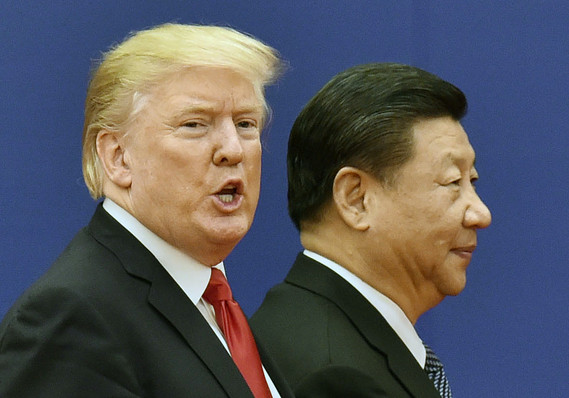 Getty Images
Getty Images
President Trump has made it clear that he is a transactional president, one who picks friends based not on values or long-term shared interests, but on how much he can squeeze out of them at any given moment. Money is the defining principle for him, not commitment to democracy, defense of western values and all the rest. It’s a philosophy that means your friend today may not be your friend tomorrow. Focusing on the Benjamins is perfectly OK when you’re a private businessman, but when you’re the president of the United States, there are more fundamental responsibilities to uphold.
Which brings me to this question: If money is Trump’s primary way of viewing the world and America’s relationship with it, why would he expect any of our traditional allies to cooperate with him in his Chinese tariff war? After all, lots of them make more money—the most important thing, right?— by trading with China than they do by trading with us. A few examples:
• Japan: exported $144 billion in goods and services to China last year, but $140.6 billion to us.
• Taiwan: $96.7 billion vs. $39.7 billion;
• Singapore: $50.4 billion vs. $31.9 billion;
• Malaysia: $34.4 billion vs. $22.5 billion;
• Indonesia: $27 billion vs. $18.5 billion.
Get the idea? In terms of pure cash, we’re just not as important to these countries as China.
The data reflects a big point that few Americans, including the president, seem to appreciate, and that is the degree to which many of our friends are pivoting, at least economically, to China. This isn’t 1945, when the United States had half the planet’s GDP and could dictate its terms to everyone else. We’re still the biggest slice of the pie, around 24%, but Beijing continues to close the gap.
This is a dynamic that has been accelerating for years, and will continue to accelerate, as China becomes wealthier. In 2002, for example, just 4% of its population was considered middle class, says a study by the Center for Strategic and International Studies. By 2012 that had climbed to 31%, or 420 million people. By 2022—nearly here—it is expected to grow to 550 million people. And that’s still only about two-fifths of that giant country’s population. Of course, Japan, South Korea etc. export more to them: China is huge, increasingly well-off—and right next door. The right next door argument helps explain why Mexico and Canada—with a combined population of only 170 million—are our biggest trade partners. Neighbors trade with neighbors. Trump may want a trade war with China, but he’s in a pretty small minority.
Trump also wants our allies to abandon Huawei, the Chinese telecommunications firm, for reasons of national security. His argument is valid. But I wonder to what degree the president’s constant belittling of our friends has made his argument more difficult. Countries like Britain, Germany and France see Trump as a schoolyard bully; they don’t want to be seen as caving in to him on this or any other issue.
There is also an economic reason: Huawei is already in place in many countries; ditching it ahead of coming upgrades to 5G networks could simply cost too much money. It’s unlikely that Trump, who fancies himself a master dealmaker, will get what he wants here.
Like Trump, China plays hardball. But unlike Trump, it thinks long-term. Beijing chafes at American dominance and American rules. Its ultimate strategy is to eventually establish its own version of the World Bank, its own version of the International Monetary Fund and so forth—and at a minimum establish a Beijing-dominated financial system to rival that of America’s. The national security implications are obvious. For example, it could enable bad actors like Iran—currently under severe U.S. sanctions—to conduct business beyond Washington’s reach using a new, non-American transactional network. No matter the merits, Trump’s efforts to browbeat allies and enemies has more limitations than he realizes.





